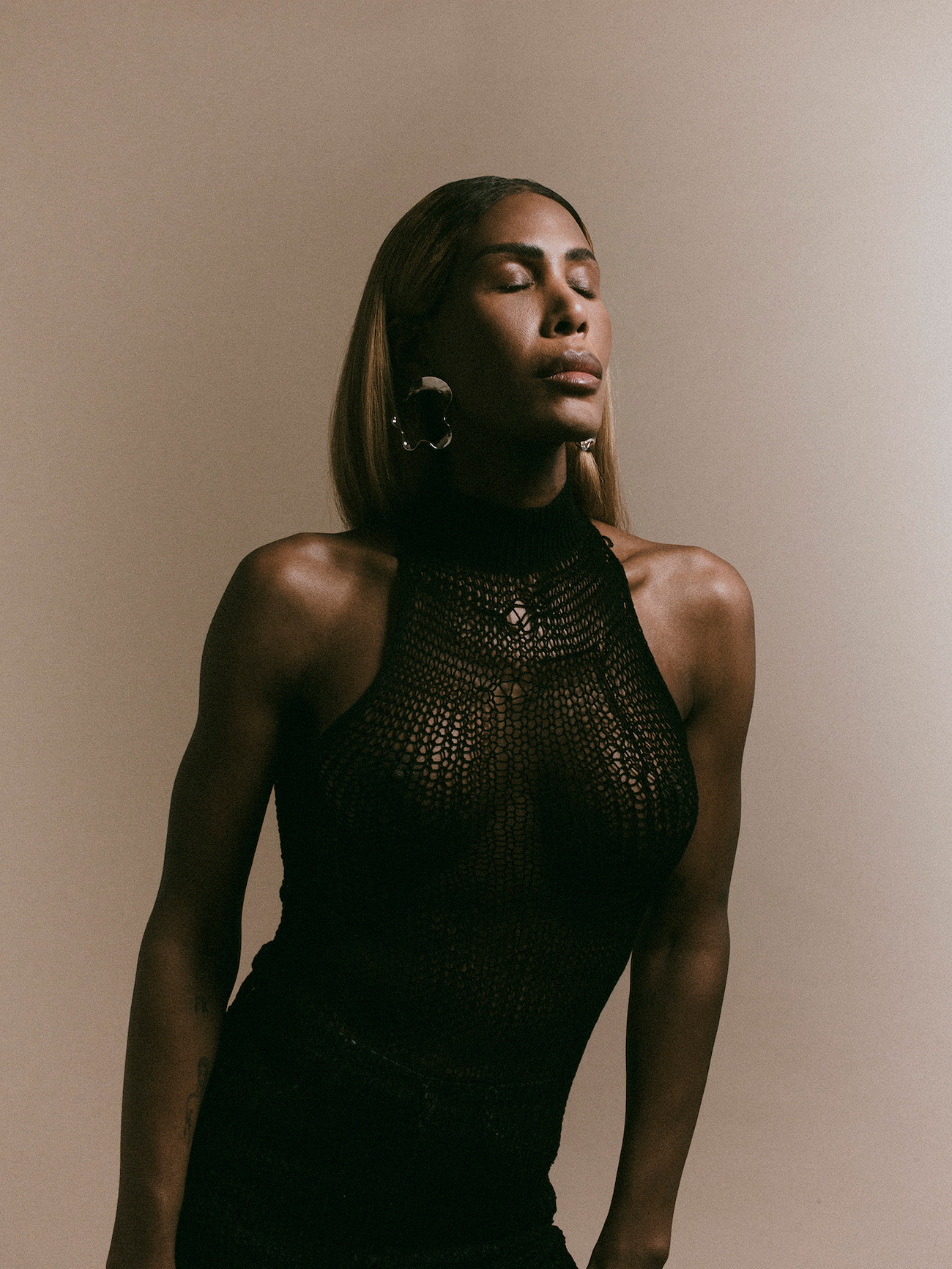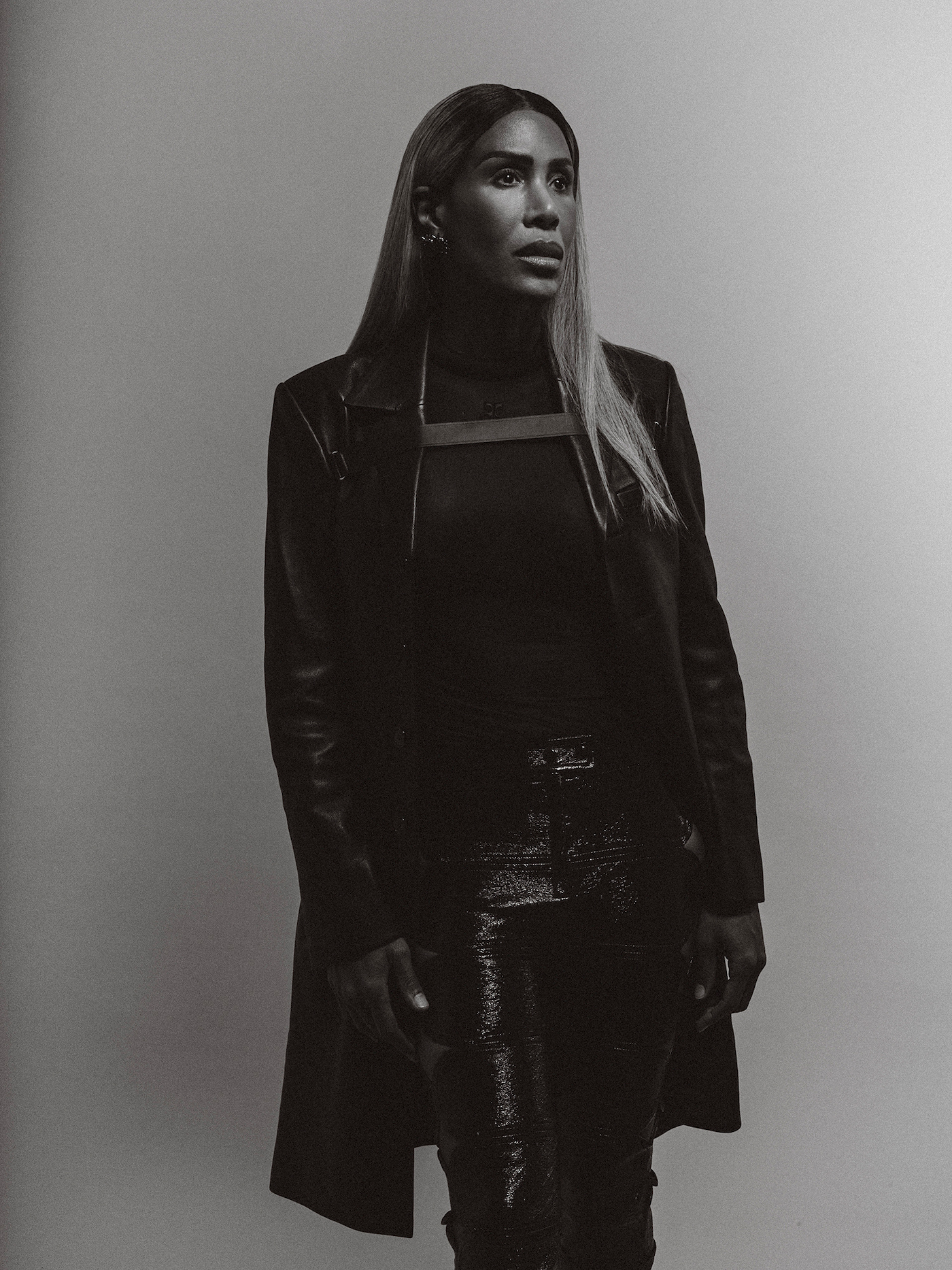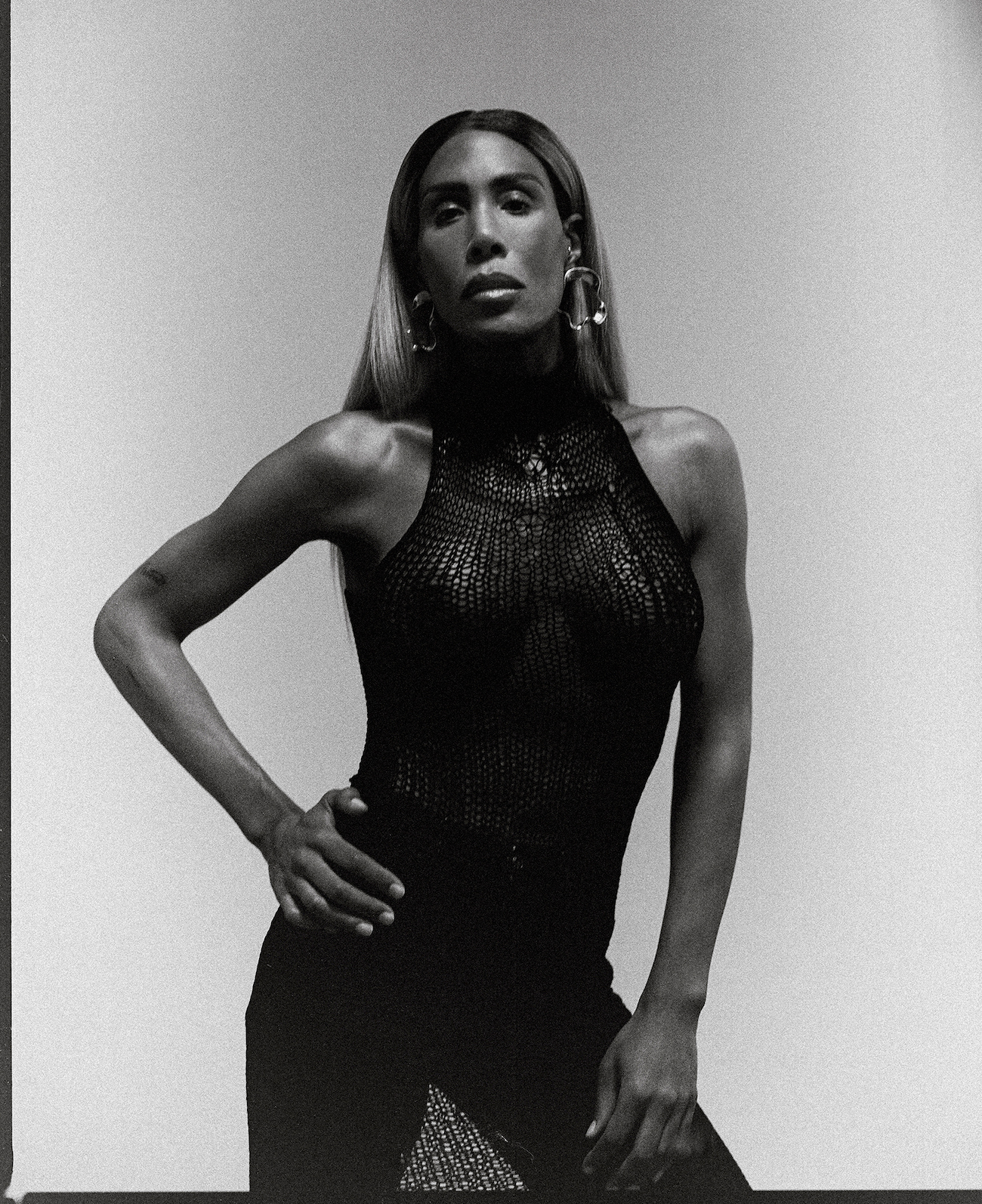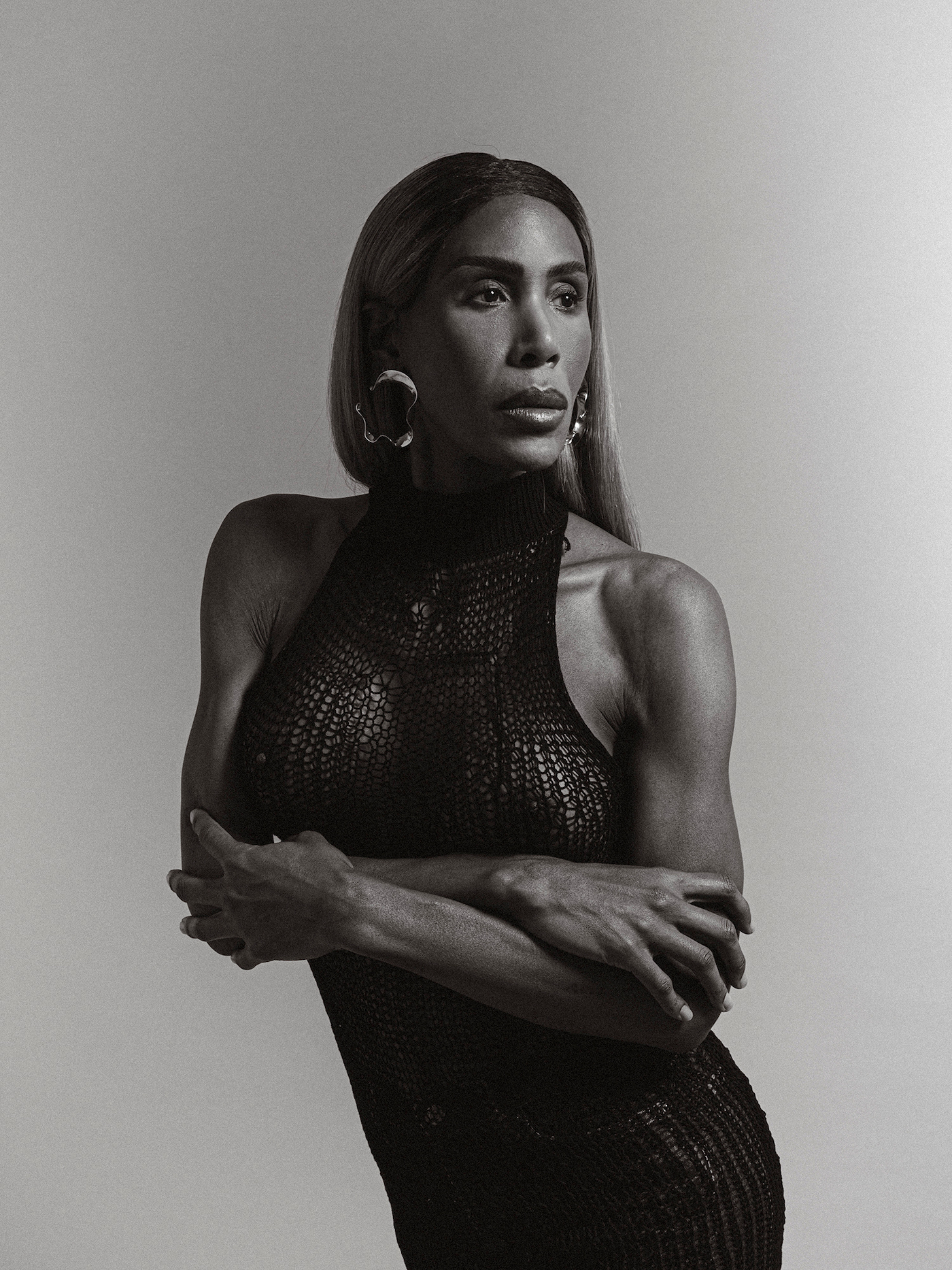Heroes: Honey Dijon
The genre-bending DJ scratching pop culture’s soundwaves

This feature appears in V139, Supermodel, Superhero issue, now available for purchase.
Multi-hyphenate Honey Dijon connects with collaborator and Grammy award-winning rapstress Eve, detailing the conception of her new project titled Black Girl Magic, working with Beyoncé on the critically acclaimed album Renaissance, and how she found a home in house music and ballroom culture.

Read the full interview below!
EVE: We have to start with talking about your creative endeavors, specifically the Beyoncé album. Two tracks on Renaissance amongst all the other creative endeavors you have in the works. Congratulations on that! First, how did that partnership come about? And what was that process like?
HONEY DIJON: I was approached and it was really fun. One day, my management called me and said, “How do you feel about writing songs for the next Beyonce album? She wants to make a dance record and she wants to tell the story of the spectrum of dance music. I was approached because I was born in Chicago, I was born at the beginning of house music culture in Chicago. And she really wanted to go to the sources of the inspiration that she was using for the album. I do consider myself to be an underground DJ so I was shocked that I was even on her radar. I know the world may have a different perception of me.
E: I love that about you. I feel like when you stay in that space and mind frame, it keeps things new and exciting. You know what I mean?
HD: Yeah. No matter how much success I have, I still consider myself a bedroom DJ from Chicago. I didn’t even know I could be on her radar. So we began the process and she really did her homework. When I got that call, I thought, “Okay, I just can’t send her music, I need to send her what this culture was really about.” So I sent her books on Black queer theory. I sent her books on voguing and ballroom culture, as well as playlists. It was really a lot of research. I felt like if this was going to be done correctly, there needed to be the full spectrum of what she was getting into and what I was getting into. So she knew where I was coming from and what I had to bring to the table. My studio partner, Luke Solomon, and I, we got into the studio and we just started putting together ideas from our favorite music from anthems within the underground culture. But also staying within what she has already done musically in her career. After we wrote music with having her in mind, we sent it to her. It was a lot of collaboration, back and forth–slow this down, take this out, put this in. It was a totally amazing collaboration because this was all done during the pandemic. But, I believe the final selection was done earlier this year. I didn’t even know what was going to go on the album until the last minute, I found out when everyone else did. I was just excited that one track was going to make it—she chose “Alien Superstar” and “Cozy,” which are mine.
E: I love that. In your experience, what’s the process of collaboration with other artists in comparison to the process working with Beyoncé?
HD: We’re living in a new time now. Dropbox is everyone’s friend. Obviously, it’s great to be in a room doing it the old school way, writing together and vibing. People don’t realize that a lot of the time when you’re working in the studio, a lot of it is just hanging out, talking, vibing, and sharing ideas. You may have already done preliminary work, but a lot of it is just like getting connected to each other’s energy musically and spiritually. Depending on the project, you could go into the studio and you write skeletal tracks, and then we’ll get into vocal arrangements. But there’s not one way to skin a cat or one way to write music. So I don’t really know what normal is when it comes to writing music anymore because you can do it collaboratively in other parts of the world. I’ve also gotten into the studio and actually had to sing things for other artists the way that I want them to have the vocal delivery. So the creative process is so open when it comes to making music.

E: I want to talk about some of your earliest memories of music. What are they? And what drew you to music in the first place?
HD: I don’t think this is really abnormal, [but] as an African American person, we are inundated with music from the womb to the tomb.
E: Amen.
HD: Music and Black culture is like oxygen. I had my first introduction to music through my parents, they just loved music and there was always music in the house. Wherever we went–picnics, barbecues, birthdays, anniversaries–the music was just as important as the event. My parents had an amazing record collection and so I got introduced to R&B and jazz there. My dad loved Charlie Parker, the Isley Brothers, and their whispers, Marvin Gaye, and Donny Hathaway. Music has been just a part of my life since birth. Being immersed in Michael Jackson and Patrice Rushen was my school. The music at that time was coming out of the civil rights movement and uplifting people. So, my connection to music has always been about uplifting [others]. I would say that was my first introduction. When I came into my teen years, there was the early house music culture. They used to have parties at Catholic school auditoriums–and instead of having bands, we had DJs. They played a lot of disco, early house music. That was another mind-opening experience for me. It was just my journey and I was born into it.
E: I love that. Did you always know that you wanted to pursue a career in music? Or was it on the periphery?
HD: Well, the thing is, there’s no blueprint for being a DJ or even an artist. I didn’t know what I wanted to do, I just knew I wanted to be creative. I used to wake up every day wanting to see the world and I wanted to live a creative life. I didn’t know how that was going to manifest. I was bullied a lot in school, and so fashion and early house music culture were an escape for me. You had the kids that had all these–like any subculture–dress codes, and so the kids would come through the house clubs in Versace, Mugler, Gaultier, Willi Smith (WilliWear) and all this designer stuff. And I was like, “What is this, I like this, this feels like home.” So there was a connection with music, as well as clothing that led to my interest in fashion. They were never separate [entities] for me, they’ve always gone hand and hand. But when I started clubbing, I used to buy all my favorite records I heard at the club. I would just dance by myself in my bedroom. I was a club kid before I became a DJ, but I didn’t know that this could be a career path for me. When I moved to New York, I just started DJing as a passion and they always say, “The passion turned into a craft, and the craft turned into a career.”

E: I definitely get a sense of that in your work today and I think it’s refreshing to have that [snapshot] view of your [trajectory]. I think this leads up perfectly to your new record Black Girl Magic! What was your process for the new album? And what do you want to say with this body of work?
HD: Well, this body of work–I’m sure you can relate. When you start working on your record, you have a concept of what you want to say, but then life happens. And it changes the course of the record, it takes on a different meaning. I had a makeshift studio in my house in Berlin and we started sketching ideas. I got all of my favorite dance records together from past and present and we started to sketch from those emotive memories, feelings, and experiences on the dance floor. So that was the beginning of that process. We were thinking, “What were our favorite dance albums when we first started going out?” But then the pandemic happened, then George Floyd happened, and then Black Lives Matter happened. The #MeToo movement was in full effect. This album turned into a reflection…a reflection of self-autonomy, love, self-perseverance, and standing for something. Literally one of the tracks on the album that we wrote with Cor.Ece is called “Stand.” It’s basically about standing up for your belief system. I didn’t want it to be too heavy, but it was really about love and celebration. That’s why we did up “In The Club” with you and tracks like “Love Is a State of Mind.” So this album really just turned into a tribute of self-love, community, and music.
E: I really Love that! The world needs more love. It sounds cliche, but it’s true.
HD: But it’s not. It’s the truth, it’s just the absolute truth.
E: What do you hope listeners take away from the album? I’m thinking happiness and love?

HD: I hope what people take away from this is joy. I’m a big proponent of joy and I want to create music that evokes that. I just want to become a part of people’s lives in whatever way that is. I want to touch people through music, and then I’ve done my job. I’ve always wanted to contribute in life. I think that’s what artists do, we contribute to the experience of life. I just hope that I can add some joy to someone’s every day.
E: Definitely, how would you say you’ve grown personally or artistically with this project?
HD: Growing is not a destination, it’s a journey. So I’m continually growing. But I think if I could say anything, like working with Beyonce, it gives me the confidence that I can do it. I think a lot of times being an artist, in the words of Erykah Badu, “I’m an artist, and I’m sensitive about my shit,” you know? (laughs) There’s always a bit of insecurity, am I good enough? How are people going to react to it? But what I’ve realized is that I have to be more trusting in who I am and what I have to say. Also I need to stand in the truth of my voice doesn’t have to compare to someone else’s, it doesn’t have to compare to what the market says is popular. It’s okay to accept my creativity and my voice–it’s just as valid as any other. So I think I’ve grown in confidence, for sure.
Black Girl Magic is available on all streaming platforms today November 18, 2022, stream below!
Discover More
